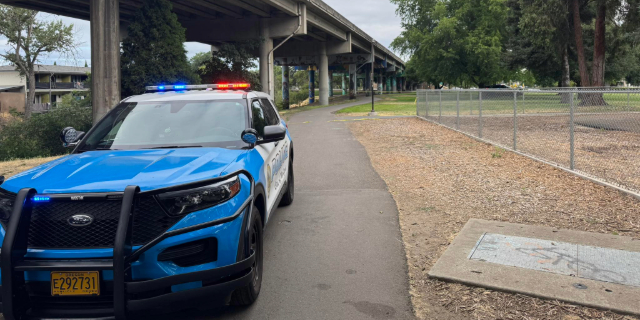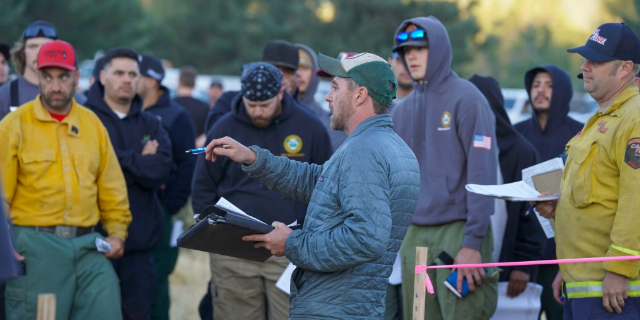Modern day nomad in Bend prefers a nylon home with a zipper door
Published 4:00 am Sunday, August 14, 2022

- faces of homelessness
Danielle McGovern prefers to sleep in a tent closer to the stars and trees. The 52-year-old’s nearby trailer is reserved for the months-old chickens she’s raising.
Trending
For the Bend houseless woman, home is not a standard structure, it’s the state where she grew up and the state where she finds her next adventure.
McGovern spent her youth and early adulthood in Hawaii, and Oregon is now her home.
“I’ve been pretty nomadic my whole life,” said McGovern.
Trending
She has lived in Bend for almost nine years. Two and a half of those have been spent on China Hat Road where she has almost everything she could want. She has friends, a dog, chickens, a trailer and, most important of all, a place to call home.
McGovern has always had a knack for adventure. She grew up in Hawaii on the Big Island until, 35 years ago, Kilauea, an active volcano, burned down her family home.
Shortly after the loss of their home, her father moved to the mainland, and McGovern soon followed him. She traveled back and forth across the contiguous United States three separate times and spent an extended amount of time with her brother in Iowa until she settled down in the Pacific Northwest.
She’s worked odd jobs throughout her life like driving trains and plumbing. Now, she works closely with a local homeless outreach nonprofit called REACH, which stands for Relationship, Empowerment, Action, Compassion and Heart.
McGovern said she doesn’t feel the need to seek housing. She said it can be just as hard for people to move into a house after living without one for so long as it is to lose a house after living in one your entire life.
“See, I’m happy-go-lucky with this deal, but I know that there’s people who are really homeless. I just don’t consider myself that way,” McGovern said.
Once a week, McGovern makes the trip from China Hat Road into town to shower and eat lunch at a local peer center. She brings her dog with her just about everywhere. His name is Ku’u ipo, which directly translates from Hawaiian to sweetheart but has connotations of unconditional love.
McGovern struggles with anxiety and bipolar disorder, which has made it difficult for her to travel into town and keep a steady job. She said she has to be careful of where she goes and who she interacts with. Instead, she said much prefers to spend her time alone outside.
“I feel at peace, comfortable,” she said.
When she isn’t traveling or working for REACH, McGovern spends the majority of her days in the forest. She makes her own clothes, raises four-month-old Ku’u ipo and cares for her chickens. It’s not all so easy, McGovern said.
She is worried that she and the other residents near China Hat will get thrown out eventually.
In early June of this year, the U.S. Forest Service issued citations to 110 homeless campers in the woods off of China Hat Road for violating their 14-day camping rule. The notices informed campers to vacate the area.
“They could throw us out anytime,” McGovern said, “but I’m so settled in there, it feels like I’m not homeless.”
It’s public land, and McGovern feels it should be regulated and designated as a camp. She said she envisions a large scale tiny house village or a pallet shelter, which are easily constructible and low cost temporary housing solutions, that could fit the needs of homeless Bendites.
McGovern maintains a deep love for the High Desert. She said her upbringing in the rainforest is a stark contrast to the dry, temperate lands of Central Oregon.
If McGovern could stay in the forest forever, she would. But McGovern knows that’s not possible, and fears it ending sooner than she would like.
When that happens, McGovern plans to return to a nomadic life and await her next great adventure.
Who are the real people impacted by skyrocketing housing prices, decisions about homeless shelters or plans to sweep informal camps? The Bulletin wants to offer insight by telling their stories through the series Faces of Homelessness. Every two weeks this year, Bulletin reporters will introduce readers to a different homeless person. We are here to tell their stories.
For suggestions on how to help the region’s residents experiencing homelessness, contact the Homeless Leadership Coalition by email at info@cohomeless.org.









